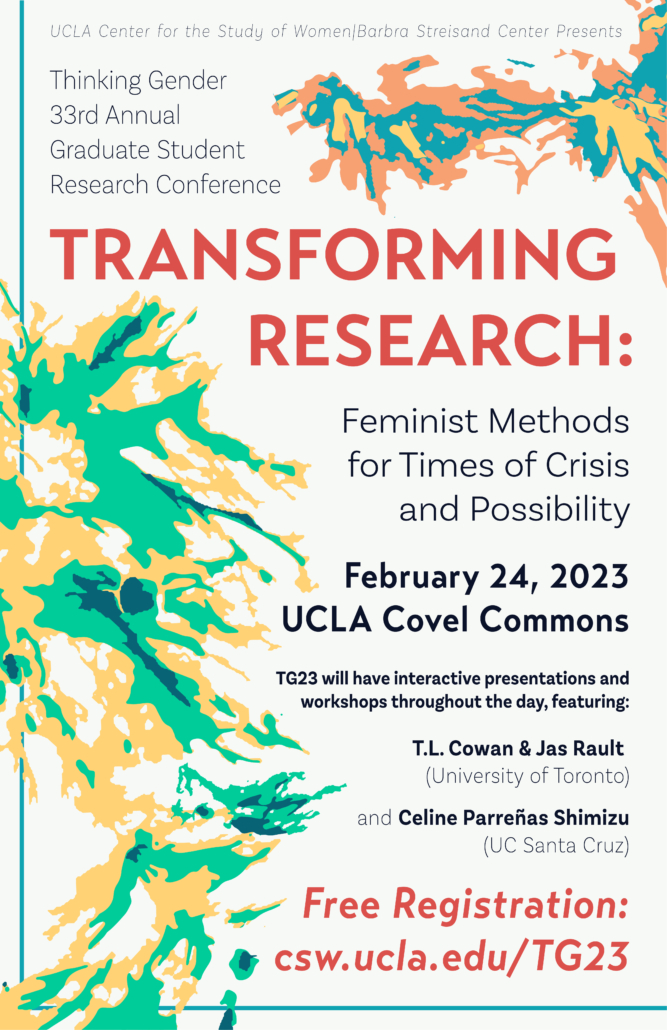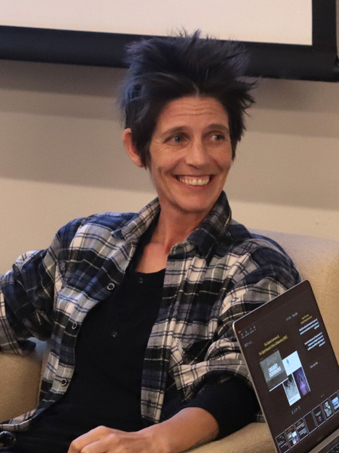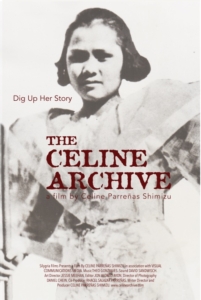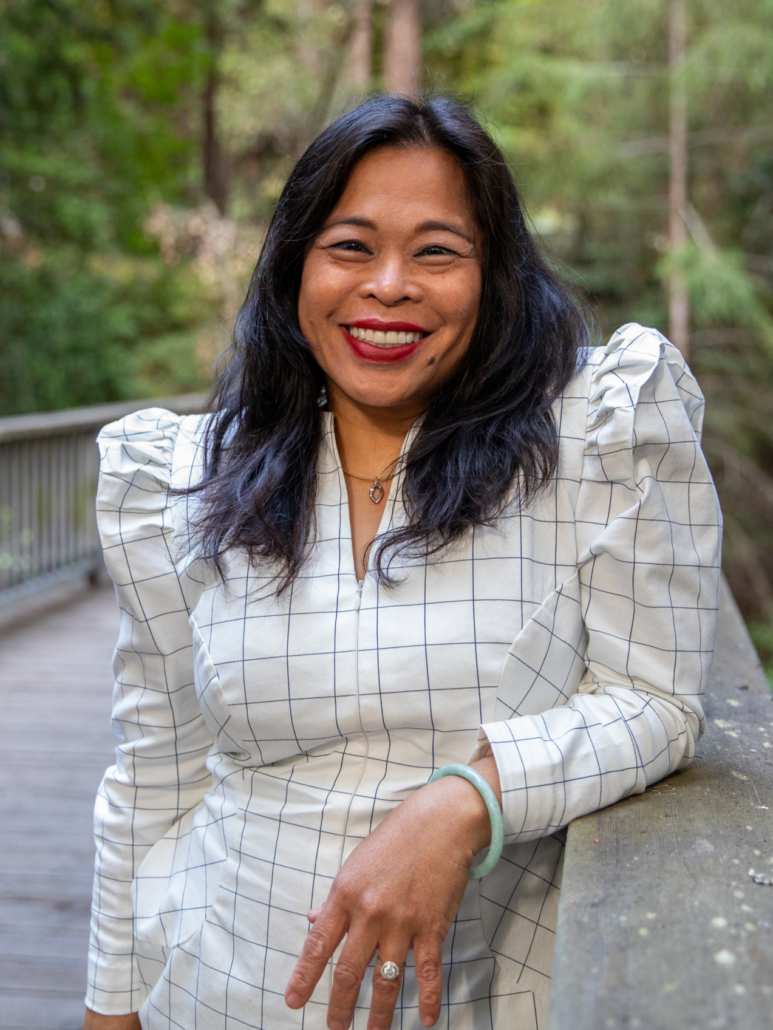Thinking Gender 2023: “Transforming Research: Feminist Methods for Times of Crisis and Possibility”
April 23, 2023 – April 24, 2023
This event has passed. Watch videos from the conference on our YouTube Channel.
Thinking Gender 2023
33rd Annual Graduate Student Research Conference
“Transforming Research: Feminist Methods for Times of Crisis and Possibility”
Thursday, February 23, 2023 (Virtual)
Friday, February 24, 2023 (In Person)
Thinking Gender 2023 will center inquiries, reflections, and imaginations of feminist, decolonial research methods and practice across fields and disciplines.
Abstract submissions are now closed.
Closed graduate student workshops for works-in-progress will be held on Zoom on Thursday February 23, 2023, for admitted students only.
Our in-person program on Friday, February 24, 2023, will be open to the public. Guests who have not pre-registered may be admitted if space permits.
In lieu of a keynote address, Thinking Gender 2023 will feature interactive presentations and workshops throughout the day.
TG23 will feature themed panels of graduate student presenters moderated by expert faculty, undergraduate student poster presentations, a media exhibit, and a concluding reception. Refreshments will be provided throughout the day.
View the Conference Program (pdf)
- Registration (7:30 – 8:30am)
- Media Exhibit (throughout the day)
- Public Presentation by T.L. Cowan and Jas Rault (8:30 -10am)
- Undergraduate Poster Presentations (10 -10:30am)
- Graduate Student Presentations I (10:30am -12pm)
- Lunch Break (12 – 1:15pm)
- Graduate Student Presentations II (1:15 – 2:45pm)
- Public Presentation by Celine Parreñas Shimizu (3 – 4:15pm)
- Graduate Student Workshop with T.L. Cowan and Jas Rault (4:30 – 6:15pm)
- Screening of The Celine Archive and Q&A with Celine Parreñas Shimizu (4:30 – 6:15pm)
- Reception (6:30 – 7:30pm)
——
Public Presentation:
“Heavy Processing for Networked Intimate Publics (NIPs): Trans- Feminist & Queer Digital Methods in and Beyond the University”
What kinds of small-world-facing methods do we need to make big-world-facing projects? Based in a joke that we decided to take very seriously, we consider heavy processing to be an information technology that runs on a desiring, pleasurable and hard-working set of attachments and sensibilities to relationship-based, complex knowledge formation, and we reflect on the ways that this method is informed by a long history of trans- feminist queer (TFQ) practices. […]
Read More
[…] Heavy processing is a research method that seeks not only to get consent, to communicate care, to clean your data, or to publish your findings and a research orientation to the pleasure (sexual, emotional, political, intellectual) of complex and sometimes incommensurate information. It is not only about accessing, collecting, storing, sharing, and circulating information, but about being transformed by that information.
In this presentation we discuss research from our forthcoming book Heavy Processing (Punctum 2023). We attend to heavy processing as a lesbian-leaning TFQ method of intellectual and ethical rigor in digital humanities, media, technology and information studies, and identify this as one genealogy for the many calls for better processing, better information politics in contemporary justice-oriented digital research methods. Of course, lesbians do not own processing – or process-based approaches to knowledge formation, transfer and cultural survivance, to data, ethics, ontology – but we stay with the possibilities for understanding process as a sexy, sometimes agonized but always committed, method for and orientation towards unruly information. We argue that the information infrastructure that heavy processing needs is Networked Intimate Publics (NIPs): networks of intimate accountability that form an inward-facing public in order to practice, to prepare ourselves and our work for the outward-facing public. These are durational collective inquiry practices that precede and make possible TFQ scholarly, artistic and activist work.
Graduate Student Workshop (sign up on site at Cowan & Rault’s public presentation):
“From Networked Intimate Publics (NIPs) to Networked Accountable Publics (NAPs): Making Time for Collaboration, Friendship & Comradeship in Research”
In this workshop we gather participants to think about how intimacy and accountability might be centered in our research relationships and practices. Networked Intimate Publics run on heavy processing technologies programmed for complex practices of accountability. Intimate accountability in research relationships does not come easily or ‘naturally’; it is not a given when people come together to work towards TFQ anti-racist anti-colonial crip and/or anti-capitalist goals. […]
Read More
[…] Instead, intimate accountability is the aspirational product of technologies of heavy processing, and these technologies both build and rely on NIPs for their functionality. At different times for different reasons, a NIP might be dedicated to this or that outcome – producing a conference, launching a website or digital archive, publishing a book, writing a dissertation – but its primary and only consistent goal is producing the skills, expertise, desire for, and pleasure in intimate accountability. The intimacy in NIPs is not an affective genre of communication deployed to gain or grow a public following – to increase attention, attachment, or interest. Instead, we mean intimacy as a set of specialized skills, information technologies and infrastructures for fostering – building desire for and pleasure in – accountability. For many TFQ NIPs and NAPs, prioritizing and practicing this intimacy means reducing or scaling down a public presence, and turning inward exactly when a project, organization, profile or artistic practice is gaining public traction, or has sped up or scaled up. For our time together, we will use crip-leaning TFQ methods in which participants will be asked to reflect on the skills, values and experiences they bring to their research, and how to use NIPs and NAPs structures and tools to build supportive and well-paced programs of research.
T.L. Cowan (she/they) is assistant professor of media studies in the Department of Arts Culture and Media (UTSC) and the Faculty of Information at the University of Toronto, as well as a cabaret and video artist. Their research focuses on cultural and intellectual economies and networks of minoritized digital media and performance practices. Her creative-research practice moves between page, stage, and screen, including the work of her alter-ego, Mrs. Trixie Cane and the “I Disown You Right Back” campaign, as well as […]
Read More
[…] the “GLITTERfesto: An Open Call in Trinity Formation for a Revolutionary Movement of Activist Performance Based on the Premise That Social Justice is Fabulous.” Notable commissions for their creative-critical work include the PlugIn Institute of Contemporary Art in Winnipeg, Queens Museum in New York City, and Nuit Blanche in Toronto. Cowan is currently completing two monographs, Transmedial Drag and Other Cross-Platform Cabaret Methods, and The Needs of Others: Trauma, Media & Disorder.
Jas Rault (they/them) is an assistant professor of media studies in the Department of Arts, Culture, Media (UTSC) and the Faculty of Information at the University of Toronto. Rault’s research focuses on trans- feminist and queer digital praxes and protocols; media histories of settler coloniality, white supremacy and sexuality; aesthetics and affects of social movements. […]
Read More
[…] Recent publications include “Window Walls and Other Tricks of Transparency: Digital, Colonial and Architectural Modernity” (American Quarterly); “White Noise, White Affects: Filtering the Sameness of Queer Suffering (Feminist Media Studies); “Ridiculizing Power: Relajo and the Affects of Queer Activism in Mexico” (Scholar & Feminist Online). Rault’s first book is Eileen Gray and the Design of Sapphic Modernity: Staying In (Ashgate/Routledge) and they’re currently working on a book, provisionally entitled Open Secrets: Technologies of Whiteness in Decline, about the ambient media of white cruelty — the sound, architecture and interface designs that try so hard to make the violences of settler colonial whiteness feel like comfort, justice and good taste.
Together Cowan and Rault co-direct three online research environments: the Cabaret Commons, the Digital Research Ethics Collaboratory (DREC), and the Critical Digital Methods Institute (CDMI). They are the co-editors of a “Metaphors as Meaning and Method in Technoculture,” a special section of Catalyst: Feminism, Theory, Technoscience (Fall 2022) and co-authors of numerous essays together as well as a book entitled Heavy Processing, about trans- feminist and queer digital research methods and ethics (Punctum Books, 2023). You can see early versions of Heavy Processing on DREC. They are also two of the co-authors of the Feminist Data Manifest-No.
Public Presentation:
“Creativity in the Face of Devastation: Methodologies of Research and Practice Across Inequality”
This session encourages participants to explore the various, even infinite dimensions of expression in order to test the limits and possibilities of actualizing our ideas whether in poetry, filmmaking, performance, and scholarly/ creative and personal /analytic writing. Practices of reading, citation, the identification of subjective / structural location, and community building in creative collaboration will be investigated so we may identify our particular practices and approaches and their stakes, risks and costs. We particularly attend to the histories of harms within our fields and disciplines as we inventory the purposes and questions guiding our work.
Film Screening:
The Celine Archive (2020) Courtesy of Women Make Movies | ![]()
The Celine Archive is simultaneously an act of journalism, a journey into family and community memory and archives, a love poem, a story of grief and trauma, and a séance for the buried history of Filipino-Americans. Filmmaker and scholar Celine Parreñas Shimizu artfully weaves together her own story of grief with the story of the tragic death of Celine Navarro, which has become lore. In 1932, Navarro was buried alive by her own community of Filipino-Americans in Northern California, but the circumstances surrounding her death were and are unclear and have often been spun, sensationalized, and dramatized. The filmmaker, a grieving mother with ties to the same community, finds resonance with Navarro’s memory and long-lost story, and she sets out to first learn — and then tell — the truth about Navarro’s death, ultimately portraying her as a feminist heroine. […]
Read More
[…] Through animation, portraiture, site visits, archival materials, and interviews with scholars, family, and community members, the film shares the most widely circulated versions of the story. In one version, Celine Navarro committed adultery, but there is no proof beyond the accusations. In another, Navarro reported a crime committed by one the members of the fraternal organization Caballeros Dimas Alang, of which she was a part. The member ended up in San Quentin Prison, and for this she was labeled a traitor and punished. In a variation of this story, the crime she reported was one of gendered violence – rendering Celine a brave, pioneering feminist who refused to be silenced. A final version of her story, one that is documented by the Filipino American National Historical Society and believed by her family members, discloses that a community leader stalked and preyed upon her, ignoring Navarro’s repeated refusal of his advances.
What does it mean to be descendants of violence, and in particular, gendered violence? How can women heal and make families whole? How can truth-telling help family members move through grief? Told with great care and respect for Navarro, her family, and her descendants, this film is a gift of love given to generations who have held Celine in heart and women fighting to have a voice in the face of violence.
Celine Parreñas Shimizu, film scholar and filmmaker, is dean of the Division of Arts and distinguished professor of film and digital media at the University of California at Santa Cruz. She wrote The Proximity of Other Skins (2020), Straitjacket Sexualities (2012), and The Hypersexuality of Race (2007) and co-edited The Feminist Porn Book (2013) and The Unwatchability of Whiteness (2018). Her recent films The Celine Archive (2020) and 80 Years Later: On Japanese American Racial Inheritance won several festival awards. She received her PhD in modern thought and literature from Stanford University, her MFA in film directing and production from the UCLA School of Theater, Film and Television and her BA in ethnic studies from UC Berkeley.
TG23 will also feature graduate student presentations moderated by expert faculty, undergraduate student poster presentations, a media exhibit, and a concluding reception. A detailed program will be posted closer to the conference date.
Refreshments will be provided throughout the day.
Cosponsored By
- American Indian Studies Center
- Anthropology Department
- Asian American Studies Center
- Asian American Studies Department
- Bixby Center on Population and Reproductive Health
- Center for the Study of Racism, Social Justice, and Health
- Center for Community Engagement
- Center on Reproductive Health, Law and Policy
- Center X
- Chicana/o and Central American Studies Department
- Chicano Studies Research Center
- Comparative Literature Department
- Critical Race Studies Program, UCLA Law
- Disability Studies
- English Department
- Graduate Division
- Humanities Division
- Institute for Research on Labor & Employment
- Institute of American Cultures
- Institute on Inequality and Democracy
- International Institute
- Justice, Equity, Diversity and Inclusion, David Geffen School of Medicine
- LGBTQ Campus Resource Center
- Luskin School of Public Affairs
- Penny Kanner Endowed Chair in Gender Studies
- Promise Institute
- Ralph J. Bunche Center for African American Studies
- School of the Arts and Architecture
- School of Theater, Film and Television
- Social Welfare Department
- Sociology Department
- Williams Institute at UCLA Law








